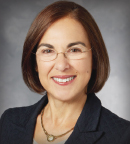The well-loved Art of Oncology section of the Journal of Clinical Oncology (JCO) and its pioneering podcast are both resonating as never before, as cancer specialists are prompted into deeper reflections about the poignant moments that give life meaning by the COVID-19 pandemic.
JCO’s Art of Oncology section has given readers a chance to reflect on their experiences with patients, to unpack dilemmas they encounter in clinic, and to share personal reflections about the inner life of the practicing oncologist for the past 20 years. Since 2017, these reflections have been available to oncologists on their commute and as they relax on the podcast Cancer Stories: The Art of Oncology. Following an expansion this past year, the podcast now also includes interviews with oncology trailblazers who provide invaluable oral histories about the extraordinary advances that continue to shape the field today.
As oncologists have adjusted to social distancing and virtual interactions with patients and colleagues during the pandemic, there has been an even greater need to nurture a sense of community and shared experience.
“Perhaps through the lens of thinking about self-preservation and having more time during the pandemic to turn inward and reflect, more people will realize that these aspects of our lives give meaning to our lives and are essential, important elements of self-care,” said Lidia Schapira, MD, FASCO, of Stanford University Cancer Center. Dr. Schapira has served as Chief Editor of the Art of Oncology section since 2015. She meticulously reads each submission and has interviewed authors on the Cancer Stories podcast since 2017.

Lidia Schapira, MD, FASCO
“The pandemic has helped others to think more deeply about their inner life and we have seen an increase in submissions, so maybe people have more time to write or have a desire to share their thoughts,” added Dr. Schapira.
Housekeeping
A recent episode of the monthly podcast showcased a poem titled “Housekeeping,” written by David Harris, MD, a palliative care physician at the Cleveland Clinic. The poem was inspired by a conversation he had with a terminally ill patient, who had been cleaning out her closets so her husband wouldn’t have to.
Dr. Harris wrote, “She wiped her eyes on her hospital gown. I imagined her at home, pulling out hangers and holding up clothes to her wasted body, choosing what to save and what to throw away. And by save, I mean leave behind for her husband afterward. Me imagining her imagining him, pulling out hangers, loosely dangling clothes, a Christmas sweater, the jeans he liked, a scarf, a blouse. Him wondering what he is supposed to do with a pink blouse.”
In a podcast interview with Dr. Schapira to discuss his writing, Dr. Harris said conversations with patients in these critical moments of their lives are powerful, and that it is important to share this experience with a wider audience.
“I think most of us in oncology and palliative care go into the field because we look for moments like this and we appreciate moments like this…but day-to-day life can kind of make us blind to these things, with all the paperwork we have to do and all of the red tape,” he said. “When I talk to physicians who are feeling burned out, I notice that they don’t really bring up moments like this anymore, and I feel like they’re not noticing them the way they used to. Noticing moments like this and appreciating them help me from being burned out, and I’m hoping that people will read this poem and be able to be re-sensitized to those moments in their practice.”
Coming Out in the Exam Room
In a recently published essay in the Art of Oncology section, “Coming Out in the Exam Room,” Ash B. Alpert, MD, MFA, an oncology fellow at the University of Rochester Medical Center, came out to a newly diagnosed LGBTQ+ patient and her female partner in the exam room.
“LGBTQ+ patients tell me that physicians coming out to them is a silver lining around the very gray cloud of transphobia and homophobia. When physicians come out to patients, both patients and physicians can be freed of the mistaken assumptions and expectations that a cisgender and heterosexual world has placed on us,” wrote Dr. Alpert. “I didn’t expect to write about what happened in me when I connected to this patient and her partner and allowed some hidden parts of me to shine on the surface—safe, happy, and warm.”
The act of physicians opening a window into such a personal aspect of their own humanity represents an inversion of the traditional doctor-patient relationship. It can serve as an important example for fellows as they consider how to build an inclusive environment that honors a person’s identity and creates the most comfortable possible setting for patients.
A Chemotherapy Breakthrough Discussed on the Podcast
As well as pointing to the future, the Cancer Stories podcast reflects on the vision of the oncologists who laid the foundation for modern care.
Daniel F. Hayes, MD, FASCO, of the University of Michigan Rogel Cancer Center and Past President of ASCO, began hosting interviews on the Cancer Stories podcast with some of the pioneers of oncology this past year.

Daniel F. Hayes, MD, FASCO
As he says at the start of each interview, “Over the past 40 years, I’ve been fortunate to have been trained, mentored, and inspired by these pioneers. In fact, it’s my hope that, through these conversations, we can all be equally inspired by gaining an appreciation of the courage, the vision, and the scientific understanding that led these men and women to establish the field of clinical cancer care over the last 70 years.”
Dr. Hayes recently interviewed Emil J. “Jay” Freireich, MD, FASCO, considered one of the pioneers of combination chemotherapy. In the episode, Dr. Freireich recounts his upbringing in Chicago during the Great Depression as the son of Hungarian immigrants. He matriculated at the University of Illinois College of Medicine, unbelievably, at age 16.
He shares the fascinating story of his work at the National Cancer Institute, where he; James F. Holland, MD, FASCO; and Emil “Tom” Frei III, MD, were the first to demonstrate that administering concurrent combination chemotherapy, rather than giving it sequentially with each episode of disease progression, resulted in complete responses in pediatric patients with acute lymphocytic leukemia.
In the mid-1960s, they ultimately developed the VAMP regimen, consisting of vincristine, doxorubicin hydrochloride, methotrexate, and prednisone. “That was reported in 1965, and the report represents the first cures that we’d seen with chemotherapy in an advanced cancer of any sort,” said Dr. Hayes. “This work was the groundbreaking basis for the subsequent cures of advanced Hodgkin lymphoma, non-Hodgkin lymphomas, adult leukemias, testicular cancer, and, in my opinion, the striking results of adjuvant combination chemotherapy in breast and many other cancers.”
Recalling his youth in a rough neighborhood of Chicago, Dr. Freireich said in the podcast, “I spent my life stealing things, hubcaps and windshield wipers, and avoiding getting crushed by the roving gangs,” perhaps foreshadowing his decades-long career as an innovator and risk-taker who would join forces with other visionaries to develop chemotherapy regimens that would save countless lives and revolutionize the practice of oncology for future generations.
The Cancer Stories: The Art of Oncology podcast is available on Apple Podcasts, Google Play, or online at aoopodcast.ascou.libsynpro.com.
© 2020. American Society of Clinical Oncology. All rights reserved.

